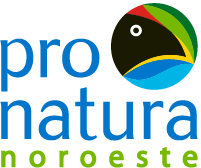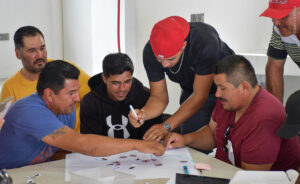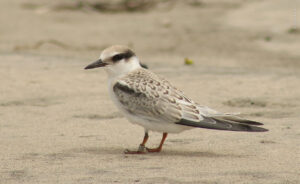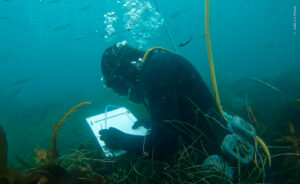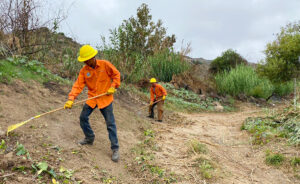Wildlife and ecosystems as a tourist attraction draws millions of visitors worldwide. Northwest Mexico has a long tradition regarding tourism in many important natural sites, as its geography, landscape and biodiversity are at the same time seductive and enigmatic.
A few examples of conservation tourism activities are boat tours to observe the Gray Whale (Eschrichtius robustus) in the sanctuaries of Laguna Ojo de Liebre, Laguna San Ignacio and Magdalena Bay; hiking along the trail to discover the mangrove swamp in Balandra Bay; kayaking and hiking in the spectacular Cabo Pulmo National Park; exploring the rocky reefs in Bahía de los Ángeles, and the unparalleled swim with the Whale Shark (Rhincodon typus), among many others.
However, uncontrolled visits have proven to be invasive and highly damaging to the environment. Therefore, these recreational experiences should be carried out responsibly and, in some cases, on a limited basis. Our experts at Pronatura Noroeste have been providing guidance to tourism and companies in this sector for decades.
Science based information is an essential element to protect natural areas. This encourages visitors to learn more about their surroundings and strengthens their sense of belonging to their natural environment. For this reason, at Pronatura Noroeste we promote tourism culture through courses, workshops, community support, and the creation of responsible tourism guides. At the same time, it prevents tourists from entering unpermitted areas and engaging in activities that would put wildlife at risk.
Our project in Islas Marietas National Park is a high-impact example of conservation tourism. Together with CONANP´s tour operators, the Islas Marietas Park management and the community, a sustainable management and monitoring strategy was made to encourage a balance between tourism activity and the quality of the ecosystem.
Also, we have a set of tools and educational resources available free of charge in our Educational Platform. All of this works thanks to our alliance with schools throughout the region, especially at the elementary school level. Working with students and teachers is the right path for future generations to develop a respect for nature.
Learn more about our work and participate in the promotion of conservation tourism.
